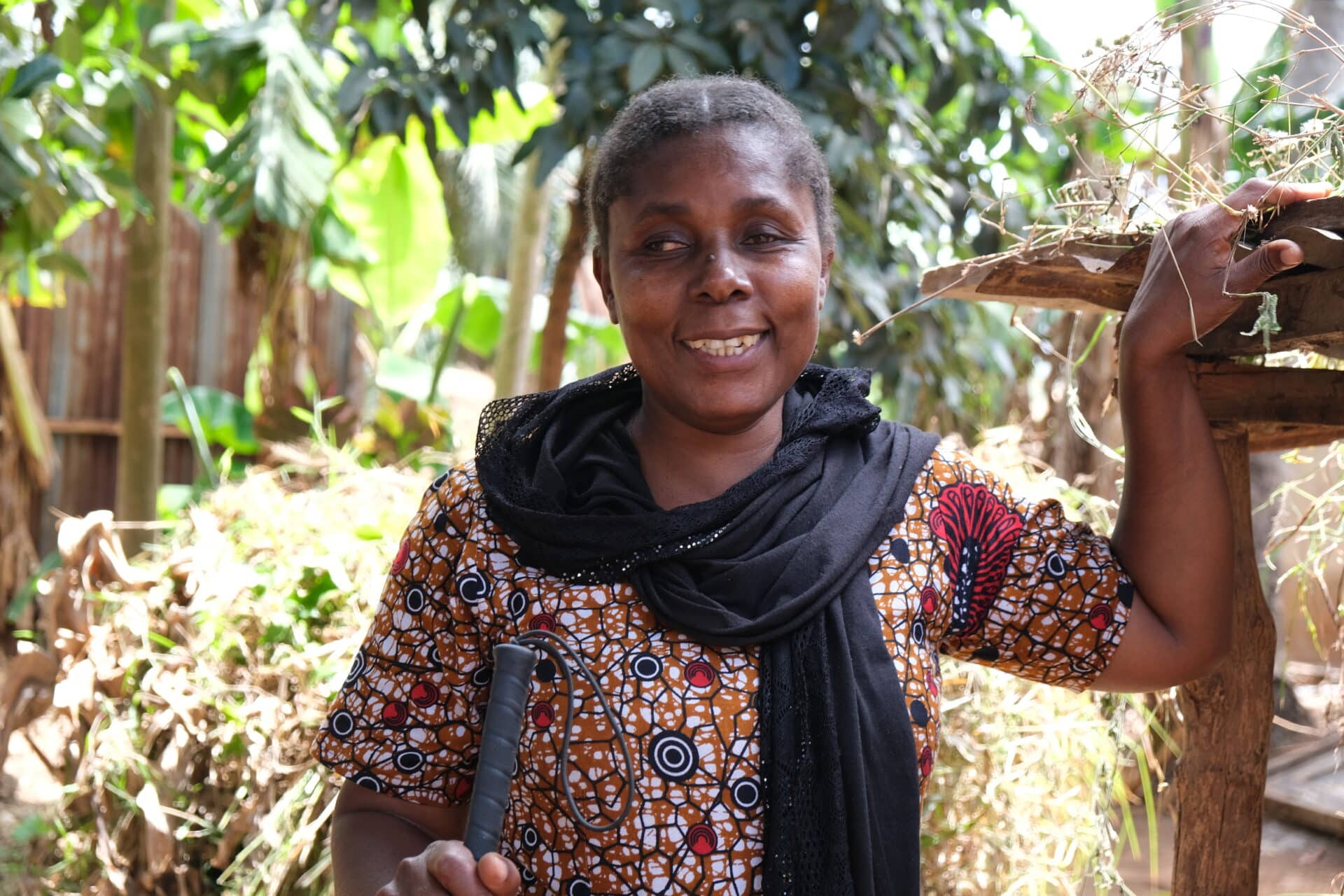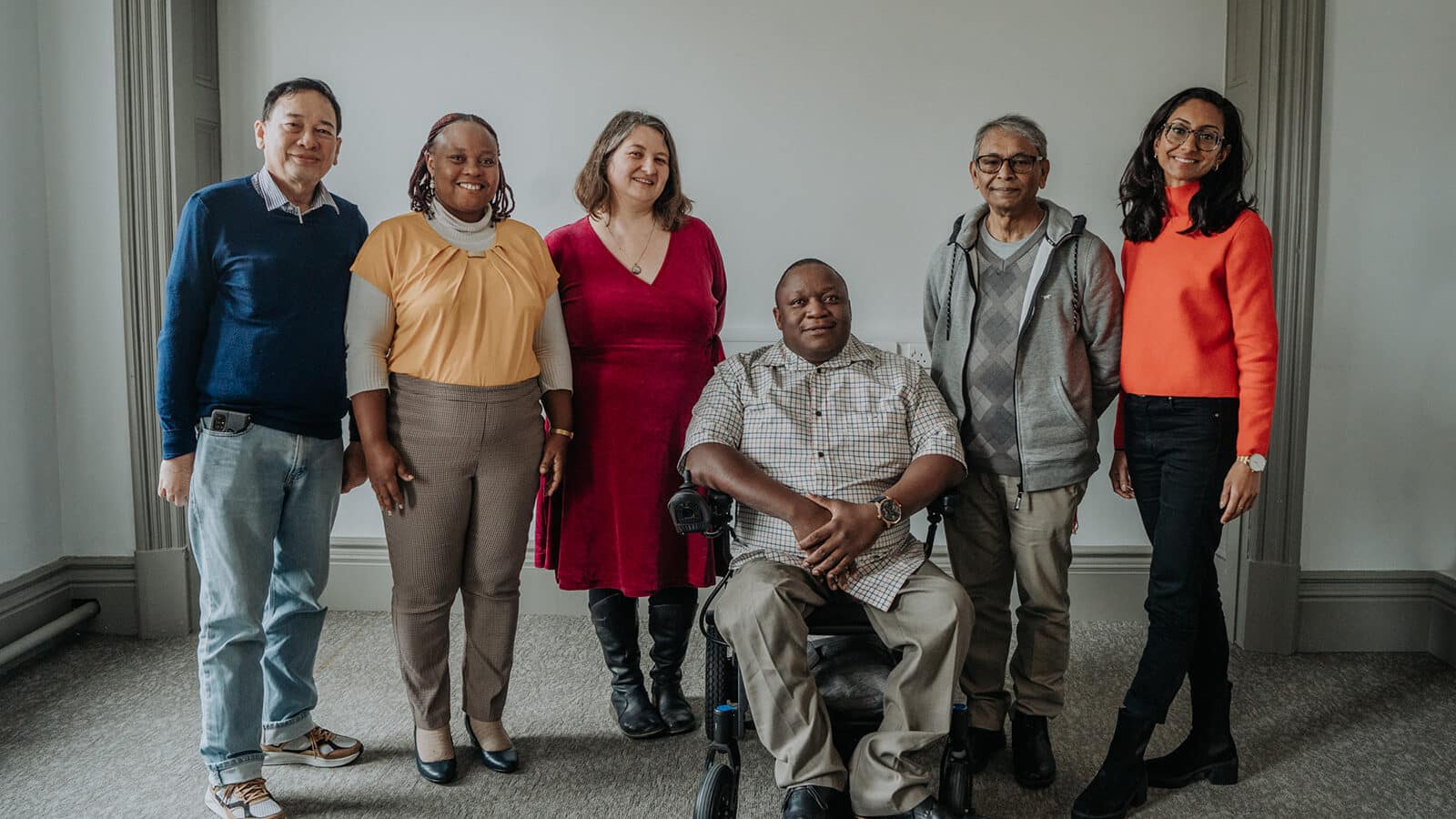Happiness is a passionate activist for disability justice. She is working to tackle violence against disabled women in Tanzania and is making long-lasting changes for her community.
Community Mobilisation.
“I was born with a visual impairment and lost all my sight. My mum was a primary school teacher and enrolled me in a school for the blind, and I loved going there.
Everyone was visually impaired, but when I had to go to secondary school, I was back in a non-inclusive school. It was tough to cope.
Later when I started my own business, I was involved in lots of events and networks and I started to notice I was the only disabled person in these meetings. I heard about ADD International and decided to take part in their training to learn how to mobilise my community, create awareness, and advocate.
ADD gave me the knowledge and skills to become a disability activist, to be courageous and confident.
I remember my first advocacy mission, a group of us went with ADD to speak to our local hospital because disabled people were not getting their medication. We campaigned for fair treatment and had the skills to do this ourselves. That’s when I realised I could do so much more.
Community Leadership.
I feel very bad when I find someone who is disabled going through a tough situation.
Now I have gained capacity and experience to do something about it. I intervene. I don’t keep quiet. I can go to the police, and they know me well. The government also knows me very well. When I go to the social welfare office, they say, ”Let that lady in! She is dealing with women and girls with disabilities.
Now community members listen to me, they trust me. Through these relationships, obstacles have been removed. You cannot build good relationships in one year. It takes time.
We get small funds but it is very little compared to the scale of the work we need to do. It’s difficult to look for funding because of discrimination. People see our disability they don’t see our capability.
Local insight for real change.
We have been so proud of our work with ADD International. You give us money and trust to let us plan ourselves at a local level. We know our issues, our context, our community – change should come from us, not from outsiders.

The situation for disabled women is very painful. Many disabled women are being humiliated, they can’t take care of their kids, they are often abandoned when they get pregnant. They lack resources and that makes them vulnerable.
I always talk to them. Try to encourage them. It is not easy. Sometimes people don’t have food. I try to convince them that there is life again. We need to make sure that they are psychologically okay. Most of them are tired of life. They no longer want to live. We must do extra work to make sure they are okay.
Disabled men also want us to include them. Men are afraid. They are ashamed to say they experience violence too. We also need to do research on men. We need to be more inclusive with men. We also need to talk about the women-to-women violence [non-disabled women’s violence towards disabled women].
Whenever I meet the district council director, I tell them we need to help these women to know their rights and the services available to them. For example, 2% of the district council budget is for disabled people income-generation activity. It is a duty of the district, that disabled people access this money and their independence.

I love creating awareness for disabled women, to understand who they are, and what they can do, to help them work, and have independent incomes. I want to make sure they can have a good life.
I have a spare room that I give to women with disabilities. It is full of sewing machines. I mobilised to get these machines. I mobilised local women to sew here. I provide the room so they can run their income-generating activity here.
I have a small shop, I keep cows, I have motorcycles that bring in an income. I must share what I have with other disabled people. I don’t have much but what I have I share.”
keep reading

activist stories
Hear from more of the disability rights activists we work with.

About Us
Find out more about ADD International and what we do.

